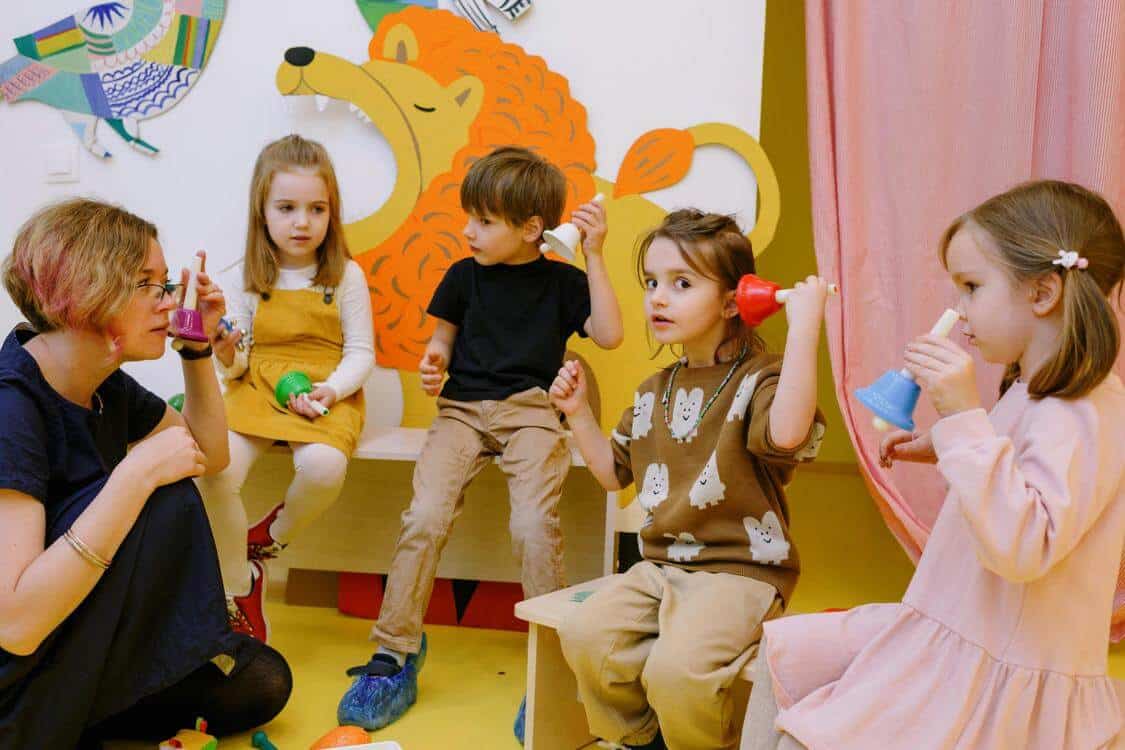Whether boarding school is the right fit for your child depends on many factors. Family circumstances, for example, are a huge consideration because children will miss family moments and events while at school.
Student personality is also important because a boarding school environment is highly social. This is a great benefit for some students, but might not be the best fit for others.
Academics
If your child wants to excel at their education, boarding school offers them the opportunity. In small class sizes they will be able to have their strengths recognised and nurtured, and their weaknesses addressed in a positive environment. They will learn how to collaborate with their peers, and they will be challenged to think differently.
Boarding schools, for example, ICSE boarding schools, offer students an academic experience that is often more varied than a day school, with access to specialist teachers and resources in many different subject areas. In addition, boarding school students usually have more opportunities to participate in extracurricular activities outside of the classroom, which can help them excel at their chosen subjects.
However, it’s important to consider the student’s personality and social preferences before making a final decision. Children will be surrounded by their peers 24/7, and this highly social environment may not work well for everyone. Likewise, it’s also important to think about whether your child has the emotional maturity to deal with homesickness and other issues that can come with boarding school life.
In most cases, boarding school will be the first time your child will be away from home for extended periods of time. They will need to be emotionally mature enough to cope with this, and they should be willing to learn how to take responsibility for their own time management. They will also need to be able to overcome the inevitable homesickness that can happen, and the fact that they won’t have a phone or tablet at home to keep them company.
This is why it’s important to choose a school with experienced houseparents who can provide students with a safe and secure environment, and support them to learn how to balance their lives independently. They will need to be able to navigate situations like travelling alone on public transport, or staying out at night with friends. At the same time, they will need to be able to understand and discuss their emotions in an open manner, without fear of judgement. This can be a difficult balance for some children, but age appropriate activities and exercises can help them to learn the skills they will need as adults.
Extracurricular Activities
Many boarding schools offer an array of sports teams, clubs and artistic pursuits that allow students to discover their passions outside the classroom. These experiences foster a more well-rounded skill set, which is highly valued in college admissions and life beyond graduation. They also provide a way for your child to make friends and build a strong social network.
Before your child attends boarding school, it’s worth discussing what their goals and aspirations are for their education. Ask your child if they are committed to learning and developing skills that will be relevant in their future career. If their answer is not a resounding “yes,” you might want to reconsider boarding school.
The level of independence your child can demonstrate is also an important factor to consider. If your child has never been responsible for their own personal needs or daily routine, full-time boarding school might be too much of an adjustment for them. However, if they are able to navigate a new environment without much parental guidance and proactively seek help from teachers and peers, then a boarding school may be the right fit.
Boarding school is a unique experience that will bring your child many new opportunities and memories for a lifetime. To ensure that your child will get the most out of their time there, it is important to take the time to discuss expectations and goals with them, as well as to visit campuses to meet academic, residential life and athletic staff.
Once your child is at boarding school, it is essential to encourage them to be open and honest about how they are feeling. It is normal to miss home, and you can reassure them that their houseparent or head of the boarding department will keep them up-to-date with what’s going on. In addition, they can always call you and update you on what they are doing at school and the great friends they are making.
Social Interaction

Boarding schools encourage close and meaningful relationships between students. This interaction provides the opportunity to build strong interpersonal skills that are beneficial in any future social environment. Students are also encouraged to develop empathy for their peers, as well as for people from a variety of cultural backgrounds.
Because they do not have the opportunity to return home after each school day, boarding school students often build stronger connections with their peers than do those who attend day schools. These relationships can be a source of support and motivation for their academic pursuits. Boarding school faculty members also play an important role in fostering these social connections by acting as mentors, role models, and advocates for their students. Small student-to-faculty ratios ensure that students receive the attention and guidance they need to succeed in high school, as well as throughout their lives.
While many parents feel that their children are ready to go off to boarding school in 9th grade or 10th grade, some students may not be emotionally prepared for this drastic change. This can lead to a feeling of loneliness, anxiety, and fear. While these feelings are normal, parents can help their teens find ways to cope with them until they feel comfortable enough to return to a boarding school at a later date.
Boarding school life offers a unique opportunity to build a network of supportive friends and teachers that can last a lifetime. Students are often able to connect with their peers through extracurricular activities, such as music and sports. These interactions are a great way to develop teamwork and leadership skills. They can also provide an outlet for a child’s emotional expression. Boarding school students can also develop a sense of independence from their family members as they are able to interact with other adults in a similar setting, reducing the tension of family dynamics at home.
Although it is possible for a child to thrive in a boarding school setting, frequent parent-child separation may have long-term negative effects on their emotional well-being (Bowlby, 1973). For example, as a result of this repeated experience of returning home as a stranger, an ex-boarder may struggle to trust in intimate relationships as a lasting repercussion of their disrupted attachments.
Residential Life
Boarding schools offer students a full-immersive school experience. This includes living, studying and socializing with peers all day and night — a close-knit community that supports academic achievement and personal growth.
Often, these communities are diverse, which allows students to expand their perspectives and horizons by interacting with new people from around the world. These experiences can inspire a lifetime of curiosity, thought-provoking conversations and lifelong friendships.
Most boarding schools also limit distracting technologies, such as television and video games. This helps students focus on their studies and provides a more structured environment, which can be particularly helpful for teens with ADHD or other learning disorders. For example, the Marine Military Academy only allows its cadets to watch TV or play games on weekends.
Additionally, boarding schools typically provide access to challenging academic courses and additional academic support, such as extensive libraries and knowledgeable faculty. This can allow students to explore their interests and develop a deeper understanding of complex subjects, which they may not be able to pursue at home due to limited resources or family schedules.
Boarding schools are often located in rural environments, which can be a positive aspect for some students who thrive in a quiet and peaceful setting. However, it should be noted that this could impact how frequently students can visit their families for the weekend or holidays, and it might make it more difficult to get to a local airport for flights home.
Many boarding schools offer sports programs that teach important skills like teamwork and leadership, while also providing physical benefits for their students. These activities can range from traditional football and basketball to more unique offerings like equestrian and crew. These programs can help students discover a passion or interest that they might want to further pursue in college or beyond.
While private (day) schools typically don’t offer as many opportunities for students to connect with their families, they can be a great fit for students who are ready for a more independent school experience and are capable of managing time away from home. This independence can be a great opportunity for teens to gain self-reliance and confidence.




